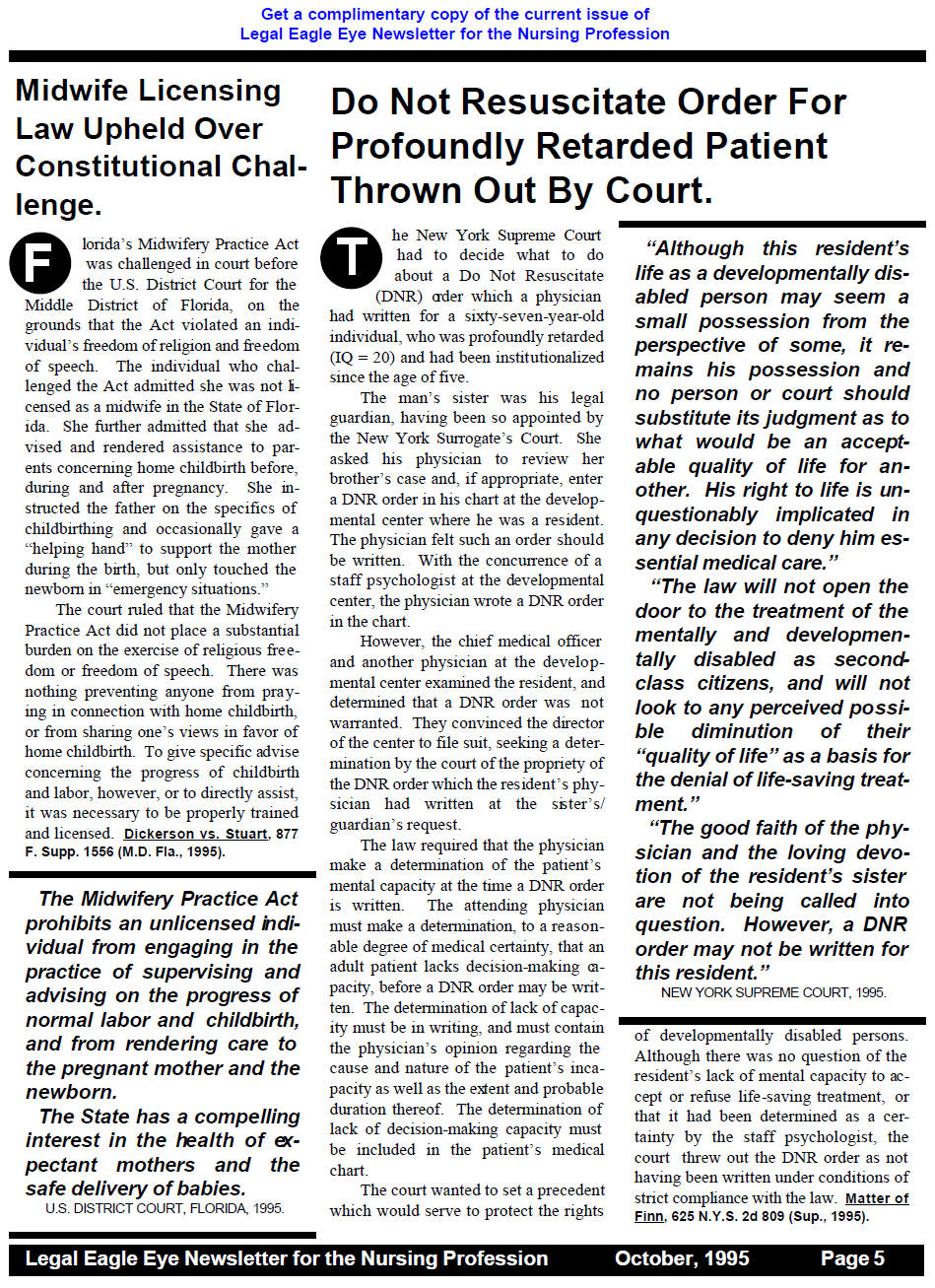
Quick Summary: The law will not open the door to the treatment of the mentally and developmentally disabled as second-class citizens, and will not look to any perceived possible diminution of their quality of life as a basis for the denial of life-saving treatment.
Although this resident’s life as a developmentally disabled person may seem a small possession from the perspective of some, it remains his possession and no person or court should substitute its judgment as to what would be an acceptable quality of life for another. His right to life is unquestionably implicated in any decision to deny him essential medical care.
The good faith of the physician and the loving devotion of the resident’s sister are not being called into question. However, a DNR order may not be written for this resident. NEW YORK SUPREME COURT, 1995.
The New York Supreme Court had to decide what to do about a Do Not Resuscitate (DNR) order which a physician had written for a sixty-seven-year-old individual, who was profoundly retarded (IQ = 20) and had been institutionalized since the age of five.
The man’s sister was his legal guardian, having been so appointed by the New York Surrogate’s Court. She asked his physician to review her brother’s case and, if appropriate, enter a DNR order in his chart at the developmental center where he was a resident. The physician felt such an order should be written. With the concurrence of a staff psychologist at the developmental center, the physician wrote a DNR order in the chart.
However, the chief medical officer and another physician at the developmental center examined the resident, and determined that a DNR order was not warranted. They convinced the director of the center to file suit, seeking a determination by the court of the propriety of the DNR order which the resident’s physician had written at the sister’s/guardian’s request.
The law required that the physician make a determination of the patient’s mental capacity at the time a DNR order is written. The attending physician must make a determination, to a reasonable degree of medical certainty, that an adult patient lacks decision-making capacity, before a DNR order may be written. The determination of lack of capacity must be in writing, and must contain the physician’s opinion regarding the cause and nature of the patient’s incapacity as well as the extent and probable duration thereof. The determination of lack of decision-making capacity must be included in the patient’s medical chart.
The court wanted to set a precedent which would serve to protect the rights of developmentally disabled persons. Although there was no question of the resident’s lack of mental capacity to accept or refuse life-saving treatment, or that it had been determined as a certainty by the staff psychologist, the court threw out the DNR order as not having been written under conditions of strict compliance with the law.
Matter of Finn, 625 N.Y.S. 2d 809 (Sup., 1995).